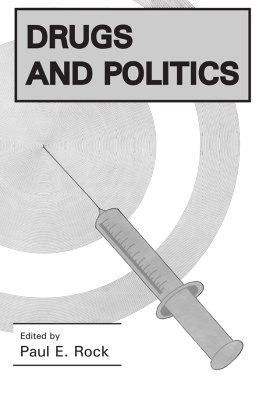Routledge Revivals
Making People Pay
First published in 1973, this book offers a fascinating and systematic description of the debt-collection process in 1970s England. Basing his research on the words of creditors, debtors, solicitors and debt-collectors, Paul Rock's research was conducted when imprisonment for debt was still in existence. The book covers the major stages in a defaulter's career, from enforcement by his creditors and the work of the debt-collector, through the various processes of the law, often to a period of imprisonment. Particular attention is given to the attempts made by debt-collectors to manage an unusual form of deviance and the consequences of their actions.
Making People Pay
Paul Rock
First published in 1973
by Routledge & Kegan Paul
This edition first published in 2013 by Routledge
2 Park Square, Milton Park, Abingdon, Oxon, OX14 4RN
Simultaneously published in the USA and Canada
by Routledge
711 Third Avenue, New York, NY 10017
Routledge is an imprint of the Taylor & Francis Group, an informa business
1973 Paul Rock
All rights reserved. No part of this book may be reprinted or reproduced or utilised in any form or by any electronic, mechanical, or other means, now known or hereafter invented, including photocopying and recording, or in any information storage or retrieval system, without permission in writing from the publishers.
Publisher's Note
The publisher has gone to great lengths to ensure the quality of this reprint but points out that some imperfections in the original copies may be apparent.
Disclaimer
The publisher has made every effort to trace copyright holders and welcomes correspondence from those they have been unable to contact.
A Library of Congress record exists under ISBN: 73083121
ISBN 13: 9780415828314 (hbk)
ISBN 13: 9780203521516 (ebk)
Making people pay
Paul Rock
Department of Sociology,
London School of Economics
Routledge & Kegan Pual
London and Boston
First published in 1973
by Routledge & Kegan Paul Ltd
Broadway House, 6874 Carter Lane,
London EC4V 5EL and
9 Park Street,
Boston, Mass. 02108, U.S.A.
Printed in Great Britain by
Unwin Brothers Limited,
The Gresham Press,
Old Woking, Surrey.
A member of the Staples Printing Group
Paul Rock 1973
No part of this book may be reproduced in
any form without permission from the
publisher, except for the quotation of brief
passages in criticism
ISBN 0 7100 7684 3
Library of Congress Catalog Card Number: 7383121
Contents
Tables and figures
Tables
Figures
This book is a piece of descriptive sociology which attempts to lay bare the basic structure of the English debt collection process. I believe that it can serve two main purposes: it offers information about a central but almost totally neglected area of social control; and, more important, it documents the manner in which social deviancy is managed so that few defaulters undergo significant transformations of identity. In Lemert's terminology, it is a study of primary deviation, deviation that is slight in its implications for the rule-breaker's beliefs about himself and his place in the social world. Debt collection is a system of artful control which is quite unlike any other that has received formal analysis. It represents a deliberately constructed moral career whose effects and organization contain remarkable features.
Some major changes have taken place in the collection system since the study was completed. The report of the Payne Committee on the Enforcement of Judgment Debts generated new legislation which led, in particular, to the substitution of the attachment of earnings for the older sanction of imprisonment under the 1869 Debtors Act.of symbols. Again, legislation has now rendered a whole field of study inaccessible to anyone but the social historian. When the new control structures crystallize, they should present interesting contrasts whose evolution deserves attention.
Although some of the phenomena described in this book are now extinct, I shall continue to describe them in the present tense. Any other practice would lead only to convoluted language and an unnecessarily complicated style.
Making People Pay is a truncated and revised version of the doctoral dissertation which I prepared at Oxford. Terence Morris was extremely kind to me when I was unsure whether I could pursue graduate work. Officials of the County Courts Branch and the Prison Department were most patient with me, being generous with their advice. In particular, I would like to acknowledge the assistance of the staffs of the Lambeth, Westminster and Willesden county courts and of the Registrar of Bow county court. I would also like to thank the creditors, debtors, debt-collectors and solicitors who gave me their time and expertise with little or no obvious gain to themselves. Above all, I am deeply grateful to Nigel Walker whose supervision and interest were most stimulating. I was extremely fortunate to be placed in his care.
The legislation was contained in the Administration of Justice Act, 1970, which came into effect in August 1971.
Debt collection is a most complex process whose ramifications extend into many areas of social life. It is distinguished by an internal intricacy, being made up of ordered stages. Each stage is a different kind of activity guided by different ideas and governed by different sentiments. Each stage is organized by a particular grouping of institutions which have their own functions, conceptions of collection, relations with one another and links with institutions in adjoining stages. Enforcement itself is but a part of a larger economic, political and legal system of credit, consumption and market behaviour. It is patently impossible to present all the faces of so complicated an entity in one coherent model. Any manageable analysis must neglect or obscure vast tracts of potentially interesting terrain. I shall thus try to make my description more intelligible by dwelling on a few major substantive and formal themes. These themes will lend order to discussion and permit a detailed focus.
Making People Pay is mainly a study of enforcement as a type of status passage. I shall ignore those features which have comparatively little influence on the shape of the enforcement career and on the assumptions that dictate how far and how fast a defaulter will be propelled through the sequence of unpleasant experiences prepared for him. Debt collection can be pursued over long periods of time. Its structure and style are carefully devised to impart an impression of significant change and development. It fosters the belief that the defaulter's intransigence is becoming ever more consequential for him. In order to promote this belief, those who collect debts work with an elaborate symbolism based upon the timing, spacing, pacing and contents of their approaches. Enforcement is represented as an unambiguous progression towards an unpalatable fate. As debtors near that fate, they are encouraged to review the meanings of their actions and their relations to the collection system. The bureaucratic control of default is therefore organized around the managed transformation of debtors identities. It routinely prepares status passages for hundreds of thousands of people.










